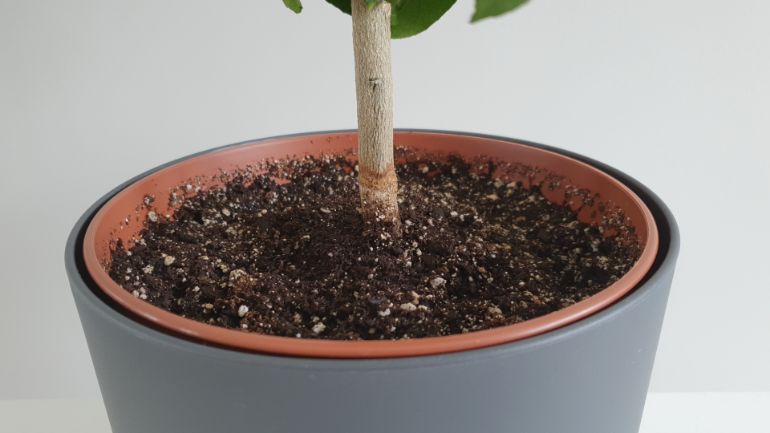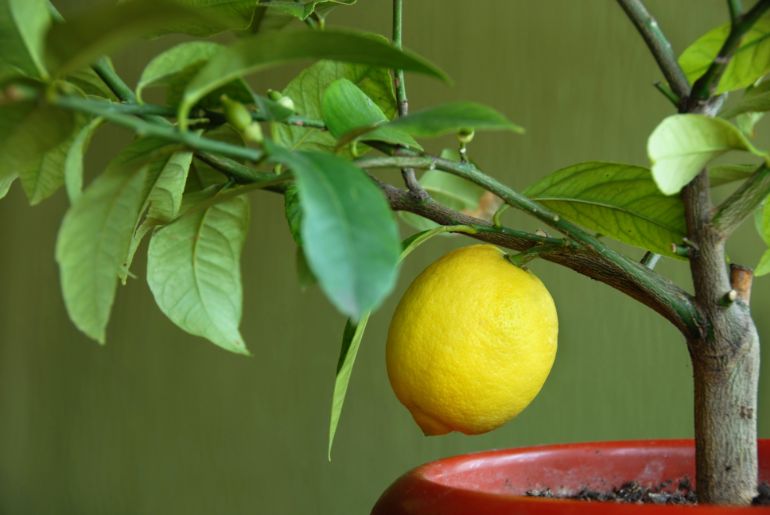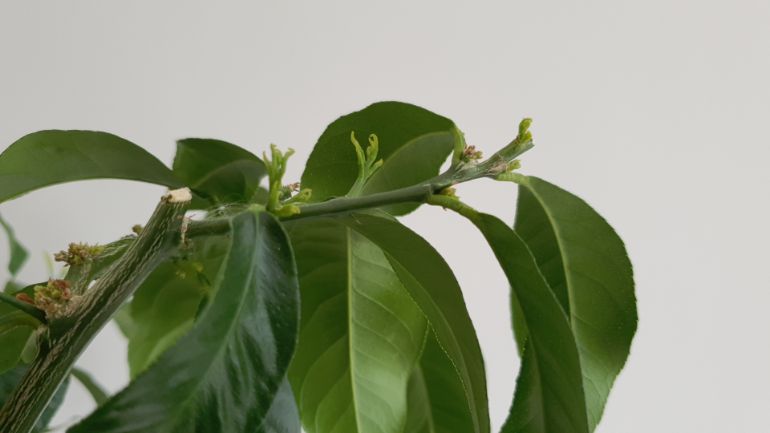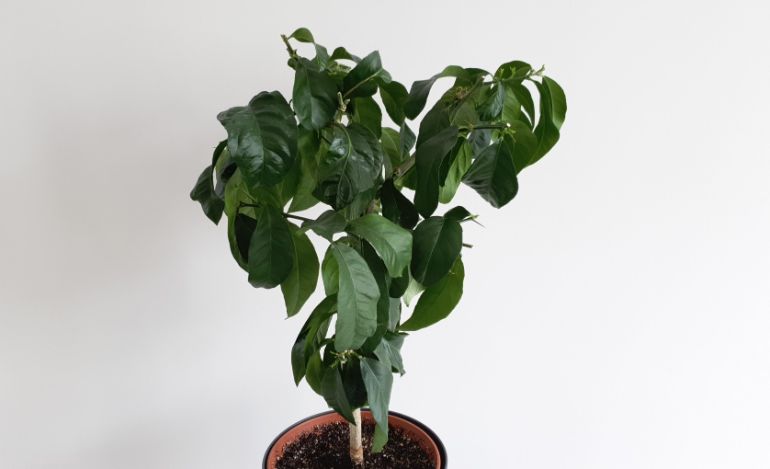It’s hard to beat the appeal of growing lemon trees, with their glossy leaves, fragrant flowers, and fruit-bearing potential. Whilst normally fast-growing, there are a number of issues that can result in your lemon tree not growing as well as you hoped. This article will uncover the most common issues and help you get your lemon tree thriving again.
The main causes of a lemon tree not growing are insufficient light, water, and fertilizer. All are essential in moderation for healthy growth. Problems such as root rot or pests can cause damage and prevent growth. Some lemon tree cultivars are naturally small and may not grow as large as others.
Reasons For Your Lemon Tree Not Growing
Let’s cover each of the most likely reasons for a lemon tree not growing to help you work out what is happening with your tree. Look at each issue in turn, try to identify any problems, and make adjustments to help your lemon tree thrive.
Whilst this article mainly focuses on potted lemon trees grown inside and outside, most of the same principles apply to lemon trees grown in the ground.
Lack Of Water
Lemon trees have high water requirements and their growth is significantly stunted when water is scarce. If your lemon tree isn’t getting enough water you may also notice the following signs;
- Excessive leaf curling
- Leaf drop
- The leaves feel dry and inflexible.
- New growth dying
- Brown leaf tips
The water requirements of lemon trees are increased due to their love of full sun conditions, which results in warmer temperatures and increased evaporation from the soil and water loss through transpiration. You should keep a close eye on how dry the soil is every day or two and water once the top inch or so of soil is dry.
You will also notice a big difference in water use from winter to summer. I have a number of lemon trees in pots both indoors and outside, and their watering needs can change from once every 7-10 days in winter to every other day in summer.
New growth tends to die off quickly in dry conditions and this can have a major impact on the growth rate of your lemon tree.
Overwatering
The other watering issue that can result in your lemon tree not growing is overwatering. Overwatering isn’t so much about giving the plant too much water, but growing your plant in conditions that prevent excess water from draining properly.
If you leave your lemon tree in soggy conditions, it will soon develop root rot, which will damage or kill the roots and can even kill your plant, never mind stop it growing.
It is crucial to grow your lemon tree in well-draining potting mix and use a pot with plenty of drainage holes. In addition, remember to empty any drip tray or cachepot after watering, so the roots aren’t sitting in wet soil for a prolonged period of time.
Poor Soil
With such high water requirements, the drainage of the soil your lemon tree is planted in is crucial. Water should soak into the soil within seconds of watering, and not take more than 20-30 seconds to start draining out of the bottom drainage holes.
Whilst you can purchase ready-made citrus soil, this is by no means necessary. In fact, I often find that ready-made citrus soil does not drain sufficiently well.
My indoor citrus trees are potted in 2/3 citrus potting mix and 1/3 perlite, to improve drainage. However, a combination of 2/3 general-purpose potting mix and 1/3 of perlite, pumice, or gravel will work equally well.
If you notice water pooling on the surface of the soil for a long time after watering, I would strongly recommend either repotting your plant in better draining potting mix, or aerating the soil to improve drainage. You can read more about how to choose or make an ideal potting mix here.

Insufficient Light Will Stop Your Lemon Tree From Growing
Lemon trees love full sunshine and will grow most strongly when they get plenty of light. Insufficient light is undoubtedly the most common problem encountered when growing lemon trees indoors, and some people even suggest that you shouldn’t bother trying to grow lemon trees indoors. This is nonsense, but you do need to ensure sufficient lighting to keep your lemon tree growing healthily.
Lemon trees should normally be placed right in front of the sunniest window in your house. For those in the northern hemisphere, a south-facing window is a prime location. Light drops off rapidly as the distance from a window increases. Even moving your lemon tree a few feet closer to a window can more than double the amount of light it receives. See my article on light requirements for indoor plants to learn more.
One thing to bear in mind is that lemon trees get used to the light they are in, so it may be best to move your plant to a brighter spot in stages. Moving a lemon tree from a dark corner to full sun in one step can result in leaf scorching, but if you move it closer to the window in two or three steps over a few weeks, the plant will acclimate, and cope with the change without issue.
Too Much Or Too Little Fertilizer
Lemon trees have a reputation for having high nutrient requirements, and I have found this to be the case. Whilst you don’t want to overdo it, your lemon tree will not grow as fast as you wish or produce as many flowers or fruits without a regular supply of nutrients.
There are multiple options for fertilizing your lemon tree, such as adding additional organic material to the potting mix, or using a synthetic fertilizer on a regular basis. You don’t have to use a specific citrus fertilizer. I like to use a balanced, water-soluble fertilizer, diluted to half the recommended strength every 4-6 weeks from early spring, right through the growing season, stopping in late fall.
Bear in mind that using too much fertilizer is usually worse than too little, and can damage the roots of your plant, resulting in your lemon tree not growing, or even worse. Follow the instructions on the packet, and don’t be tempted to add more. You can read more about how best to fertilize your plants in this article.
Pests
Lemon trees are relatively pest-resistant, but they can still suffer pest infestations that will result in your lemon tree not growing and showing considerable signs of damage. Scale, mealybugs, and spider mites can do quite a lot of damage. Spider mites are particularly dangerous because you can have a major infestation before you notice the problem due to their small size.
Check your plant carefully on a regular basis to spot any signs of pests early on. I like to inspect the foliage every time I water my plants. It’s a good habit and doesn’t take any additional time in my plant care routine.
Fungus gnats (little black flies) are another common lemon tree pest, although these don’t usually cause too much damage.
Other Stressors That Can Result In Your Lemon Tree Not Growing
There are a number of other issues that can stress your lemon tree and prevent it from growing. If you’ve been through the other issues listed above and still can’t work out the problem, consider the following issues;
Temperature stress – Most varieties of lemon tree stop growing below 50°F (10°C), and can suffer damage at temperatures not much below this. Cold stress can easily result in your lemon tree not growing, so if in doubt, set up a thermometer near your plant to monitor this.
Acclimation – Lemon trees can take a while to adjust to new conditions. Whether moving your lemon tree from indoors to outside or bringing it home, it can take weeks for the plant to adjust and start producing new growth.
Drafts – Similar to temperature stress, hot or cold drafts can be enough to stress your plant and prevent it from growing. Look for air conditioning vents, drafty windows, or heat sources near your plant, and move your plant accordingly.
Disease – Although fairly disease resistant, root rot will stop your lemon tree in its tracks. Overwatering, low light, and poor drainage are a deadly combination. Bacterial infections such as citrus canker and fungal infections caused by anthracnose, botrytis, and phytophthora can also damage your lemon tree and stop it from growing.

How Can I Increase My Lemon Tree Growth?
The best way to increase your lemon tree growth rate is to maximize lighting, provide consistent watering, fertilize regularly, and avoid sources of stress that will hamper the growth rate. You should also ensure your lemon tree is not rootbound.
While you can’t force your lemon tree to grow, providing conditions that promote healthy growth is the best way to get your lemon tree to grow as quickly as possible. Personally, I have a number of young lemon trees and I would do anything to speed up their growth, to help them produce flowers and fruit as soon as possible. However, even with the best care, a little patience is required.
My Lemon Tree Has Not Grown For Several Years. What Is Wrong?
Your lemon tree may have stopped growing because conditions are unsuitable, or you may have a dwarf cultivar of lemon tree that will not get any bigger. Improved Meyer, Eureka, and Lisbon varieties are naturally much smaller that other lemon tree varieties.
Make sure to go through each of the care requirements in turn, ensuring that you are providing conditons that promote healthy growth.
How Fast Do Lemon Trees Grow?
Lemon trees typically grow about 1 foot in height per year, although this depends on the growing conditions and the lemon tree variety. A lemon tree typically takes about 10 years to reach its maximum size. Pruning lower branches can promote vertical growth.
How Long Does It Take For A Lemon Tree To Bear Fruit?
It normally takes between three and seven years for a lemon tree to bear fruit. Fruiting time depends on the lemon tree variety as well as how optimal the growing conditions are. Grafted lemon trees typically produce fruit faster than those grown from seed.
How Do You Revive A Dying Lemon Tree?
The most important task is to determine why your lemon tree is dying. Once you have identified the cause or causes, you can make some changes to help your plant. Root rot is a common cause of problems, so consider repotting to inspect and prune damaged or diseased roots.
It is normally best to act quickly if you see your lemon tree struggling, as delaying action can result in your lemon tree getting worse, or even dying.
Why Is My Lemon Tree Not Growing New Leaves?
A lemon tree will not produce new leaves if its care needs are not being met, or if it is experiencing stress that is hampering growth. Look for any signs of pests, disease, temperature stress and treat accordingly. Optimize lighting, water, and fertilization to promote healthy growing conditions.
Will My Lemon Tree Leaves Grow Back?
Once your lemon tree drops leaves, they will not grow back but it can produce new branches and leaves in time. Lemon trees do not produce new leaves along existing branches, but pruning bare branches back can stimulate new stem and leaf growth.

Why Is My Lemon Tree From Seed Not Flowering?
Lemon trees grown from seed have unpredictable genetics and not all plants will produce flowers, fruit, or even grow like other lemon trees. Providing good growing conditions will increase the likelihood of flowering and fruit production.
Lemon trees grown from seed can look quite unlike the parent plant. Leaf shape, thorn production, flowers, and fruits can all look markedly different. Some lemon trees grown from seeds can have distorted foliage and branches, so choosing from a number of saplings is the best way to pick a healthy plant.
I have been growing lemon trees from seeds for many years and it can be really enjoyable to see the variety of growth the plants produce. Even those plants that do produce flowers will often produce fruit that is unlike the lemons that the seed came from.
Last Word
If your lemon tree isn’t growing, it’s always best to start with the fundamentals. Inspect your tree carefully, looking for signs of problems, and consider the care you have been giving it. Once you have identified a few things that can be improved, it is much easier to make changes that will help your lemon tree to thrive again.
If you’re having any other issues with looking after your plants, check out the following articles, or take a look at my book, “Houseplants Made Easy”.

